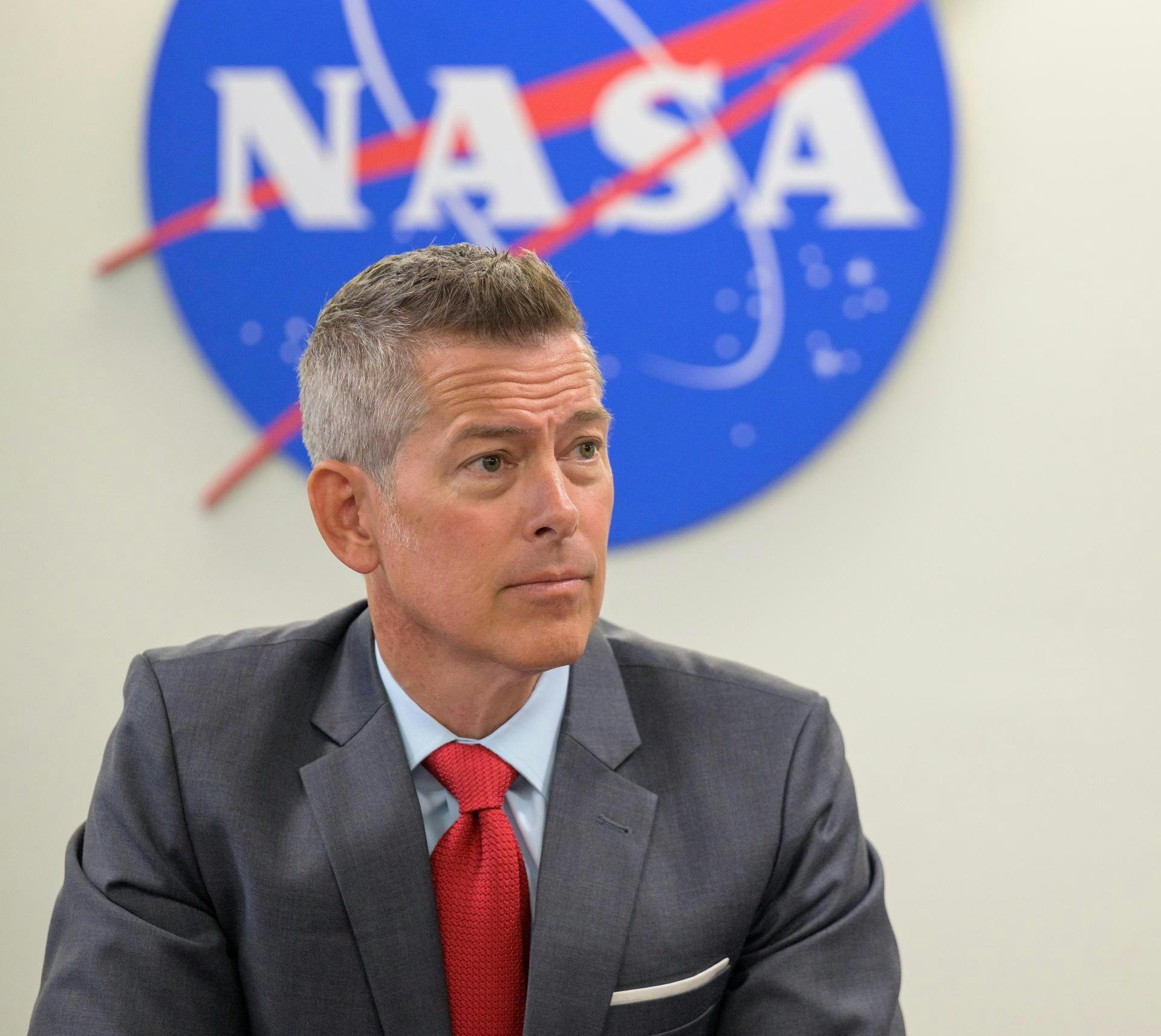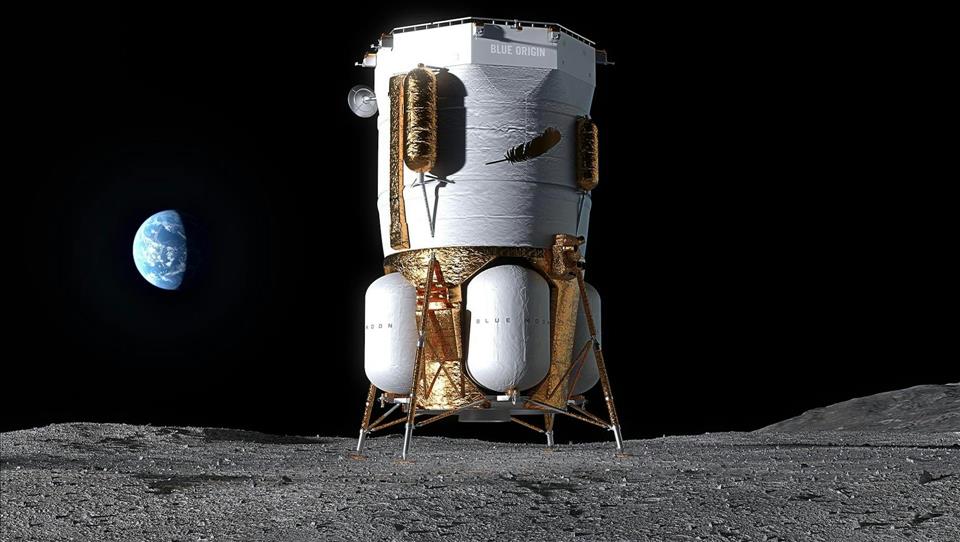
New Nasa Lunar Contest Could Pit Elon Musk Against Jeff Bezos, As US Fears China Will Win Race To Moon
The dust-up over the lunar lander could pit Elon Musk against his billionaire rival Jeff Bezos. And it has already sparked a war of words between Musk and Nasa's acting chief, Sean Duffy, which exposes fault lines over the direction and leadership of the US space agency.
In April 2021 Musk's company, SpaceX, was awarded the contract to develop the landing vehicle for Nasa's Artemis III mission – the first return to the lunar surface by Americans since Apollo 17 in 1972. The lander was to be based on the innovative Starship vehicle, already under development at the time at the company's base in south Texas.
SpaceX has carried out 11 test flights of Starship since April 2023. While launches in August and October 2025 were successful, the previous three flights ended in failure for the upper stage, or“ship” – which is the part intended to carry astronauts.
With China mounting a formidable bid for supremacy on the Moon, pressure was growing on SpaceX to make greater progress (though milestones are to some extent subjective). On October 20, Sean Duffy announced that he was opening up SpaceX's US$4.4 billion (£3.3 billion) contract to rival companies, citing delays with Starship. Duffy, who is also the US transportation secretary, has been Nasa's acting head since July.

Sean Duffy has been acting head of Nasa since July 2025. Nasa / Bill Ingalls
Musk's company must still demonstrate consistent launch safety. It also has to test critical technologies, such as refuelling Starship in orbit, before the planned 2027 date for Artemis III.“They (SpaceX) do remarkable things, but they're behind schedule,” Duffy claimed.
China plans to land its astronauts on the Moon by 2030 and key figures in the US space community have warned that America may lose the race.
In October 2025, Jim Bridenstine, who led Nasa under the first Trump administration, told a US Senate hearing:“Unless something changes, it is highly unlikely the United States will beat China's projected timeline.”
An artist's impression of Starship (left) docked to Nasa's Orion spacecraft (right) in lunar orbit. SpaceX
Given that Nasa landed crews on the lunar surface six times in the 1960s and 70s, getting there now might seem as if it should be straightforward. Unfortunately the rockets and capsules used for the Apollo programme are no longer in service and would be extremely difficult to reproduce today. With advanced technology, however, we should be able to produce more efficient missions capable of launching heavier payloads.
Of course the big difference between now and the Apollo era is funding. At its peak (between 1965 and 1966) Nasa was being given 4.5% of all US spending annually. This dropped consistently over subsequent decades and, in 2024, sat at around 0.4%. This factor of ten less means fewer staff, reduced innovation and more reliance on international collaborations.
Nasa has an additional disadvantage that many other spacefaring nations do not president helps determine the goals of the agency. With the office changing hands (and potentially party) every four to eight years, a singular vision can be difficult to establish. It can also make the agency slower to react to changing geopolitics.
New entrants?With China's planned Moon launch fast approaching, Duffy's call for new landers might appear to be cutting it fine. One likely contender may be able to modify an existing vehicle rather than starting from scratch. Jeff Bezos' company, Blue Origin, is planning an uncrewed launch of its Mark 1 lander to the lunar surface in early 2026. The vehicle was designed to transport cargo, not people. But a report in Ars Technica suggests Blue Origin is looking to redesign the spacecraft so that it can carry crew.
The company's plan reportedly involves“multiple” Mark 1 vehicles to ferry crew to the Moon's surface and then return to lunar orbit. Duffy has already told Fox News that he expects Blue Origin to“get involved”. Critically, the proposal from Bezos' company would skip the technical challenge of refuelling in orbit, which is required of Starship (though it's unclear at this stage how Blue Origin would avoid this).
Read more: The US is now at risk of losing to China in the race to send people back to the Moon's surface
At the same time, aerospace giant Lockheed Martin has also been putting together a group of a dozen other unnamed industry players who would build a lunar lander from existing hardware. Lockheed's vision for the Artemis III lander would take some design cues from the Apollo-era lunar module.
The day after Duffy's lunar contract announcement, Musk launched an online tirade at Nasa's acting chief. On X, Musk posted:“Should someone whose biggest claim to fame is climbing trees be running America's space program?”
Duffy is a former member of Congress and world champion lumberjack speed climber. He holds a bachelor's degree in marketing and a law degree. When comparing qualifications, it should be noted that Musk holds a bachelor's degree (in economics and physics) but pulled out of graduate studies at Stanford.
However, the SpaceX boss's feud with Duffy may extend beyond the potential loss of the lander contract. The Wall Street Journal recently reported on a“power struggle” over who will permanently lead Nasa under the second Trump administration. The SpaceX boss has long backed fellow billionaire and private astronaut Jared Isaacman to be in charge of the space agency.
Jared Isaacman had previously been nominated to lead Nasa. Nasa / Bill Ingalls
Isaacman was previously nominated by President Trump to lead Nasa, but his nomination was later withdrawn. The Wall Street Journal report says Isaacman is still in contention to lead the agency. Ars Technica, meanwhile, has reported that Duffy wants to remain in charge.
Whoever is selected will help shape the agency's priorities at a critical time. Opening up the Artemis III lander contract could lead to further infighting between Nasa and industry, endangering – rather than accelerating – the schedule. It will also cost money that is badly needed in other parts of the agency, such as its science division. This could, for example, be spent hiring researchers to analyse data from Nasa's existing missions.
Defending his company's track record on X, Elon Musk posted:“SpaceX is moving like lightning compared to the rest of the space industry.” He added:“Starship will end up doing the whole Moon mission, mark my words.”
As Sean Duffy posted in response:“Love the passion. The race to the Moon is ON.”

Legal Disclaimer:
MENAFN provides the
information “as is” without warranty of any kind. We do not accept
any responsibility or liability for the accuracy, content, images,
videos, licenses, completeness, legality, or reliability of the information
contained in this article. If you have any complaints or copyright
issues related to this article, kindly contact the provider above.


















Comments
No comment